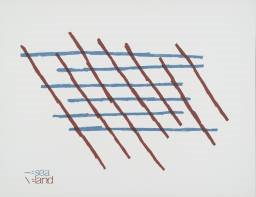
For certain sections of the British media,
twenty people sitting in a London pub is news - that is the conclusion that must be drawn, it seems, from the response to the
Euston Manifesto, which appears to be the latest attempt to make the term 'pro-war left' seem like something other than an oxymoron.
I personally think that, these days at least, the pro-war 'left' ought to be of more interest to sociologists and pyschologists who study unusual ideas than to newspapers and bloggers. Reproduced below is a paper on the pro-war 'left' which I gave to the 2004 conference of the Sociological Association of Aotearoa New Zealand, and which was republished in the most recent issue of
Red and Green, the journal of analysis and theory published (offline, alas) by members of the Alliance Party.
‘THIS IS A SOCIALIST WAR’: THE PRO-WAR ‘LEFT’ AND ITS ANTECEDENTS On the 3rd of March 2003, less than three weeks before the invasion of Iraq, the New Statesman published an interview with John Reid, the chairman of the British Labour Party and a Minister without Portfolio in Tony Blair’s government, under the headline ‘Iraq will be a Socialist War’. The talk between Reid and New Statesman political editor John Kampfner was just a skirmish in the vast propaganda war waged by the Blair government in the first months of 2003, as it tried to sell an invasion of Iraq to a sceptical public.
There was a division of labour in this campaign: Blair, his Foreign Secretary Jack Straw and other big guns focused on the alleged dangers of Weapons of Mass Destruction, while Reid, a former member of the Communist Party of Great Britain with longstanding ties to the trade union movement, or at least the bureaucracy of the union movement, was one of the unfortunates assigned the task of winning over unhappy Labour Party members with the ‘left-wing’, ‘humanitarian’ case for war. Pressed by Kampfner to explain the basis for his support for a war, Reid insisted that:
[I]t’s a thing called socialism…we are socialists because we believe in society and mutual interdependence…it’s long been a tenet of social democracy, of democratic socialism, to view with contempt all forms of fascism.Reid’s argument raised some readers’ eyebrows. In a letter published on the 17th of March, a bemused Peter Horne of Oldham, Lancashire asked the New Statesman whether “Under John Reid’s new definition of ‘socialism’, recent converts might reasonably include George Bush, Silvio Berlusconi, Richard Perle and Donald Rumsfeld. I think even Tony Blair could now be persuaded to become a socialist” Horne marvelled.
Reid’s argument was undoubtedly an unpopular one, but it was never his alone. The party chairman was drawing on a set of passionate and nuanced arguments designed by a significant minority of British intellectuals who for months had been determined to justify the coming conflict on left-wing grounds. Reid’s ‘socialist war’ was fought in the columns of Britain’s big newspapers and in cyberspace long before it reached the fields and streets of Iraq.
The ‘pro-war left’, as it came to be known, included high-profile journalists like the Guardian’s David Aaronovitz, the Independent’s Johann Hari, and the New Statesman’s Nick Cohen. Pro-war leftists without such easy access to large audiences have tended to create their own media outlets in the form of weblogs, or blogs as they’re normally known. Populated by names like
Socialism in Age of Waiting,
A General Theory of Rubbish,
Harry’s Place, and
Eric the Unread, the ‘pro-war blogosphere’ has provided a fairly continuous stream of commentary on the war and related issues.
Some of the ‘warbloggers’, as they’re sometimes known, belong to ‘traditional’ parts of the British intelligentsia. Norm Geras, for example, is a Professor of Philosophy at Manchester University, a respected Marxologist, and a biographer of Rosa Luxemborg, who runs Normblog in his spare time. But many of the warbloggers as well as the full-time journalists belong to what John Kampfner has called the ‘commentariat’, and are no more familiar with the academy than they are with their local Trades Hall.
The pulling power of the pro-war blogs should not be underestimated. According to its owner,
Normblog receives about 9,000 ‘hits’ or visitors every day;
Harry’s Place claims to receive over 2,000, and has been regularly cited in the mainstream media. Opponents of the war felt the need to create their own blog,
Barry’s Place, to parody the arguments of the pro-war bloggers.
A Very British Cause If the pro-war left seems strange to us, that’s probably because it is strange. In New Zealand there is not a single newspaper columnist, not a single left-wing politician, not a single academic who has made, in public at least, a comparable case for war in Iraq. Nor has the pro-war left been much of a feature of political debate in other English-speaking nations. Australia boasts a grand total of two pro-war left blogs, and a Labour Party which was distinctly unenthusiastic about the Iraq war. And it is difficult to imagine a member of Bush’s Cabinet, or indeed a Kerry Cabinet, justifying the Iraq adventure as a ‘socialist war’. It is notable that the most famous ‘left-wing’ advocate of the war writing in America is Christopher Hitchens, an expatriate Briton. The pro-war left seems a very British phenomenon.
I’ve been looking at some of the historical references used by Reid and the rest of the pro-war left, in the hope of clarifying a sort of line of descent for this curious phenomenon. I only have time to mention a couple of examples, but I think there’s a tradition, a peculiarly British tradition, to which we can connect the pro-war left.
Marxist imperialism? A good place to begin is Reid’s claim that ‘Iraq is a socialist war’, a line which must seem to many observers to be even more compromised than the infamous reports of Saddam’s Weapons of Mass Destruction or Iraq’s ties to Osama bin Laden. With its flat tax rate, its breakneck privatisation programme, and its revival of an old Baathist law banning strikes and independent trade unions, George W Bush’s Iraq hardly looks like a socialist paradise. Yet most of the pro-war left continues to support Reid’s ongoing ‘socialist war’. Even more curiously, more than a few of the pro-war blogs have cited Marx and Engels’
Communist Manifesto in support of their shaky case. Remembered today for its impassioned call for the destruction of capitalism, the
Communist Manifesto seems like a particularly odd straw to clutch.
It’s often forgotten, though, that Marx and Engels’ most famous text takes a long time to get to punchlines like ‘the free development of each is the condition for the free development of all’ and ‘Workers of the World Unite!’. The first and longest section of the Manifesto is largely given over to an account of the bourgeoisie’s role in massively increasing productive forces, destroying feudalism, rescuing populations from the ‘idiocy of rural life’, and dragging ‘even the most barbarous of nations into civilization’.*

To many intellectuals in nineteenth century Britain, the first section of the
Manifesto read less like history than prophecy. The first British Marxist organisation of any size and durability, the Social Democratic Federation, was led by a man who can rightly be called a forebear of today’s pro-war left. Described by Eric Hobsbawm as a ‘gentleman, cricketer, and stockbroker leading the masses toward revolution in a top hat and frock-coat’, Henry Hyndman worried the working class rank and file of the SDF by using the
Communist Manifesto to make pseudo-Marxist defences of the British Empire, arguing that Britain’s colonies were the ‘just desserts’ of the British working class. Hyndman’s views found an echo amongst the so-called socialist imperialists of the early Fabian Society.
Both the liberal, pseudo-Marxist and Fabian imperialists – we can gather them together under the heading ‘left imperialists’ – developed a vision of progress which assumed a dynamic, developing economic system – capitalism, and imperialism – which required the ‘civilizing’ influence of what we might call a ‘moral agent’, if it were to develop in a progressive manner, and perhaps ultimately be transcended. The less developed a country, the less room for the civilising mission of socialism. The left imperialists wanted to hitch a ride on the runaway locomotive of nineteenth century capitalism. It is not difficult to detect an echo of their project in today’s pro-war left. A month before the invasion of Iraq Harry Steele, the proprietor of
Harry’s Place, raised eyebrows with a post called ‘Milton Friedman, Guru of the Left’. Steele suggested that:
Capitalist modes of production are a prerequisite of moving beyond capitalism. That is a point Marx and Engels made in various of their works. I think that point has been forgotten…Commenting a year later on the programme of the Worker Communist Party, the largest and most active Marxist party in Iraq, Steele insisted that: ‘This programme is ultra-left. It calls for socialism, but capitalism barely exists in Iraq’.
Hyndman was concerned with nineteenth century Africa and Marxist critics of British imperialism like Belfort Bax, but his line of argument was strikingly similar. It is understandable that Steele does not actually invoke the name of Hyndman. Like a generation of socialists with faith in the dynamism of imperialism, Hyndman saw his reputation and career ruined by World War One, or the First Great Inter-Imperialist War, as it is sometimes more accurately called. That war and the revolutions it provoked pulled left imperialism apart, forcing the leaders of the Second International to choose between workers’ internationalism or ‘blood and soil’. Hyndman chose the latter, and parted company with the anti-war majority of the Social Democratic Federation.
1940 and the ‘people’s war’The pro-war left rarely discusses World War One, but their arguments are full of references to the Second World War. In article after article and on blog after blog Saddam is likened to Hitler, Bush is compared to Churchill, and anti-war protesters are no better than the ‘appeasers’ of fascism in the late 1930s.
Eric the Unread has gone so far as to compare anti-war bloggers to Lord Haw Haw, the British Nazi who broadcast wartime propaganda from exile in Germany. For its part,
Harry’s Place likened the fall of Baghdad to US troops to the liberation of Paris in 1944. To understand the significance of these analogies, we need to consider the role of an important minority of British intellectuals on the home front of the Second World War.
Left imperialism had been most popular in Britain and Germany, the two most dynamic economies in Europe. In Germany the experience of defeat, economic ruin, and fascism killed the optimistic, reformist ‘Marxism’ of the Second International’s great revisionist, Eduard Bernstein. But British society emerged from the war intact, if somewhat traumatised, and survived the interwar years without major upheaval. Britain’s crisis came in the middle of 1940, when the sudden fall of first Norway then France and the Low Countries left it isolated and threatened with Nazi invasion. The British ruling class that had personified inertia and stuffy backwardness in the Chamberlain years of the late 1930s was forced to call upon the aid of the left and the labour movement. Labour MPs and trade union leaders entered Churchill’s government, and one of the Spanish Civil War’s ‘red generals’, Tom Wintringham, was brought in from the cold to control a Home Guard which had attracted a quarter of a million volunteers in the first forty-eight hours after the fall of France.
It was in 1940 that the discourse of left imperialism made a dramatic reappearance. Wintringham pronounced the Home Guard a ‘people’s army’, and insisted that World War Two had become an extension of the Spanish Civil War. George Orwell agreed with him, in a stream of influential articles and a small but remarkable book called
The Lion and Unicorn: Socialism and the English Genius. Orwell’s argument was simple: if it were to survive, British civilisation would have to adopt socialistic measures like a degree of central planning and workers’ control. Early in
The Lion and the Unicorn Orwell predicted that:
If we hold our nerve, then it may be that in a year’s time the people’s militia will be lodged a the Ritz, flying a red flag – and Churchill may be leading it.Today’s pro-war left does not believe that the war in Iraq puts socialism on anyone’s agenda, but they believe along with Orwell that it is properly ‘socialist’ practice to subordinate criticism of imperialism to the defeat of ‘fascism’. It is no coincidence that Christopher Hitchens last year published an aggressively possessive study of Orwell, and that a quote from the great man adorns the masthead of
Harry’s Place.
Orwell’s view that British capitalism and imperialism had no choice but reform reflected the relative decline of his country in the first half of the twentieth century. This decline was highlighted at the end of the war, when the US forced its by-now junior ally to devalue the pound, launch a new Cold War military build-up and begin dismantling its empire. The post-war Labour government Orwell and others had looked towards to turn the ‘People’s War’ into a transformation of British society found itself holding down wages and social spending to pay for the interest on US loans and the costs of rearmament and the Korean War. The contradiction between imperialism and the hopes of its left-wing apologists was once again exposed. Orwell’s long illness and early death saved him the humiliation Hyndman had experienced.
1956 and the birth of moral imperialismAnother talismanic date for the pro-war left is 1956, the year when the revelation of Stalin’s crimes and the Soviet Union’s invasion of Hungary caused enormous splits in the Communist Parties of the West. In Britain, for instance, the party lost 7,000 of its 21,000 members. A small minority of them went on to form what is nowadays sometimes known as the Old New Left – a loose movement best-known for its role in large Campaign for Nuclear Disarmament demonstrations and for the ‘Third Campist’ opposition of some of its most notable leaders to the foreign policy of both Moscow and Washington.
The pro-war left likes to suggest that 2003 was ‘our 1956’, and that the invasion of Iraq was ‘our Hungary’. In their view, the opposition of the vast majority of the left to the invasion of Iraq is the contemporary equivalent of the acceptance of the Soviet invasion of Hungary by a majority of the old Communist Party. This analogy may be dubious in the extreme, but there is no doubt that 1956 and the short-lived ‘Old New Left’ played an important part in the evolution of the discourse of today’s pro-war left.
By the second half of the ‘50s Britain had become a second-rate power, whose economy lagged behind those of its rivals in Europe and whose empire was being steadily dismantled. Hyndman’s colonialism was no longer acceptable even in the mainstream of the Conservative Party, let alone on the left. The Old New Left was reconciled to, and indeed celebrated, the decline of Britain as an imperialist power. But some of the movement’s key thinkers presented a new vision, of Britain as a moral rather than military or economic superpower. In an influential 1960 essay called ‘Revolution’, EP Thompson speculated that:
Should the protest in Britain gain sufficient strength to force our country out of NATO, consequences would follow in quick succession...People would become aware of the historic choice offered to our country, as they became aware during the Second World War...Of all Western countries, Britain is perhaps the best placed to effect such a transition.Thompson was exhibiting a nostalgia for Britain’s old place in the world, presented in the form of an appeal for the country to become a moral actor of significance on the world stage. Where the left imperialists had once hoped to exercise a civilizing influence on the British capitalist class, Thompson now saw Britain itself as a civilizing influence on the world. Moral imperialism was to replace economic and military imperialism.
Thompson recognised that leaving NATO would prompt economic retaliation from the United States, but he saw the crisis such retaliation would cause as an opportunity to revive the spirit of 1940, and to argue socialistic measures, if not full-blown socialism, were once again necessary. Others who took up the call for withdrawal from NATO, Unilateral Nuclear Disarmament, and an ethical foreign policy didn’t consider the destabilising consequences of such actions, let alone link them to need for any major reorganisation of British society.
The Old New Left and the CND of the late 50s and early 60s are nowadays regarded as ‘utopian’ because, rejecting the rival power centres of Washington and Moscow, they could point to no ‘objective’ force that could give muscle to their vision of an ethical British foreign policy. Indeed, the New Left would spend much of the 1960s and 70s struggling against the excesses of US imperialism. John Reid himself acknowledged this history, telling the New Statesman that ‘I will bow to no one in my anti-Americanism…they were wrong in Vietnam and...in Nicaragua’.
‘The line has been crossed’For Reid and for many others on the pro-war left, the events that changed the nature of US imperialism occurred on September the 11th, 2001. The fall of the Soviet Union and the end of the Cold War had removed some of the reasons for a reactionary American foreign policy, but it would be ten years before a decisive shift in that policy would be achieved. In the words of Harry Steele:
In a post Cold War world...opposition to the US and liberal democracies in general, comes not from leftist or national liberation movements but from essentially fascistic forces. There is a point where the line has been crossed, where what may have been a progressive outlook in a previous era becomes a fundamentally reactionary position. The date that line was crossed was September 11...Hitchens has also testified to the importance of September the 11th, telling an interviewer that:
I know exactly which side I'm on, and I knew right away. I felt exhilaration on the 11th of September, and I feel slightly ashamed to say that, in view of the fact that so many people lost their lives that day. But when the day was over, and I had been through the gamut of rage and disgust and nausea and so on -- not fear, I will claim for myself. I'm not afraid of people like that. I'm very angered by them. But there was something I hadn't analyzed when I went into myself, and I was pleased to find it was exuberance. I thought, "Okay, right. I'll never get bored with fighting against these people." And their defeat will be absolute, it will be complete.It is S 11 and its supposed consequence of a ‘turn’ in US foreign policy toward anti-fascism and the promotion of democracy which has prompted the latest stage in the evolution of left imperialism. For the likes of Harry Steele, it is US imperialism which is today’s dynamic behemoth, the engine of world progress, and it is Britain, not merely the British left and working class, which has a vital role as the moral agent that can ensure the behemoth acts for progressive ends, channelling its powers.
In his interview with the New Statesman, John Reid is explicit: the Bush administration ‘started from...classic Republican isolation’, he concedes, but S 11 ‘brought home to them the need to engage with the world’. Tony Blair’s government, on the other hand, has always been guided by its ethical foreign policy, and has helped George W Bush to see the light. Reid links Britain’s supposed role as a moral actor on the stage of history to its post-imperial status, telling the New Statesman that:
The role a country can play is not just a direct consequence of population or wealth...it has something to do with the character of a country and its government...people think we’re more democratic than most places...they do think our soldiers are better than most and therefore, I suppose, they are in continual demand.A strange sort of success There’s no need, I’m sure, for me to recount here the military and political problems that the Anglo-American occupation of Iraq has encountered. Having equated US foreign policy with anti-fascism, the pro-war left has been particularly shaken by the revelation of human rights abuses by the occupiers, and by evidence of widespread Iraqi opposition to the occupation. A number of pro-war leftists have begun to equivocate, and a few have recanted.
Johann Hari aggressively championed the war on Iraq, and in the salad days after the fall of Baghdad urged a follow-up invasion of North Korea. Soon, though, Hari was calling for the end of the occupation of Iraq, citing opinion polls. Interviewing Christopher Hitchens in The Independent on the 23rd of September, Hari was disconcerted to find his old mentor rejecting the label ‘left-wing’ in favour of identification with neoconservatism. Hari ended his interview by urging Hitchens to ‘return to the left’, but it is likely that neo-conservatism, with its simple equation of the interests of US capitalism and the interests of humanity, offers Hitchens a more coherent and rhetorically defensible perspective than that of the pro-war left. Defending Hitchens’ exchange with Hari on his blog, Norm Geras suggested that ‘Today’s left may not be, after all, such a bad thing to disown’. Hari, for his part, has moved closer to the anti-war left since his interview with Hitchens. In an article published in The Independent on the 21st of January, he urged his erstwhile comrades on the pro-war left to ‘wake up’ and ‘face reality’:
Tony Blair and the liberals who thought we could ride neoconservatism to a better world have been duped. It is painful, but we cannot live in a dream world. Nothing would make me happier than if the most powerful state in the world was committed to spreading democracy and toppling vicious governments. It is not; in many places, it is doing precisely the opposite.The pro-war left seems to be disintegrating as a coherent political tendency, as its former adherents choose between an uncomplicated neo-conservatism and a return to the ‘old’ anti-war left.
Of course, the pro-war left has gained one powerful recruit since the invasion of Iraq. As late as February 2003 Tony Blair had insisted that he would tolerate Saddam’s remaining in power, if only Saddam would dispose of his weapons of mass destruction. With the discrediting of WMD claims, though, Blair has been forced to echo John Reid’s ‘socialist’ case for the war at a Labour Party conference and in several interviews. The pro-war left has seen its rhetoric enjoy an unprecedented circulation at the very time that its arguments seem under fatal pressure. We might almost say that the left imperialist tradition has been thrown another lifeline by the very failure of imperialism to liberate Iraq.
A warning for the ‘pseudo-left’It is easy to ridicule to the pro-war ‘left’, and no doubt the likes of Christopher Hitchens deserve nothing but ridicule. It is possible to argue, though, that in its very extremity the pro-war ‘left’ shows up an error which is common, in one form or another, to many of the people and organisations that Hitchens dismisses as the ‘pseudo-left’. In invading and occupying Iraq on the flimsiest of pretexts, US imperialism has shown the world its ugliest face. It is not surprising that almost all of the left has united in opposing Bush’s adventure.
At other times, though, the left has been far from united in its attitude towards the actions of the US and other imperial powers. The Balkan Wars of the 1990s and the invasion of Afghanistan in 2001 split the left, with many groups and individuals supporting some sort of ‘humanitarian’ intervention by the US and/or Europe. The invasion of East Timor in 1999 saw the Kiwi left split between a tiny anti-imperialist camp, and a huge majority prepared to believe that the likes of Bill Clinton and John Howard were acting for ‘progressive ends’.
It would be untrue to say that the Iraq debacle has destroyed all illusions in progressive imperialism. Only months after participating in the invasion of Iraq, the Australian army organised the occupation of the Solomon Islands, in an attempt to speed up the implementation of an IMF ‘reform’ programme which had seen the public sector gutted and effective control of the Ministry of Finance given to Australasian economists. Australia’s recolonisation of the Solomons was urged by the United States, which had been alarmed by French offers of military assistance to the government of the islands. Despite their recent opposition to the invasion of Iraq, large sections of the Australasian left either refused to oppose or actively supported the invasion of the Solomons. The Green Parties of both countries, for instance, applauded the move, with our own Keith Locke calling it ‘long overdue’.
We in New Zealand have our own, homegrown tradition of pro-imperialist leftism to overcome, before we can safely sneer at the absurdities of Hitchens and his British friends.
*

Marx would not always hold such a sanguine view of the destruction of pre-capitalist societies. In his
Late Marx and the Russian Road (Monthly Review Press, 1983), Teodor Shanin shows that Marx’s careful studies of Russian society, and in particular Russian peasant society, lead him to the belief that economically underdeveloped societies did not necessarily have to become advanced capitalist societies before they could experience socialist revolution.
Echoing the views of some of Russia’s nineteenth century ‘Narodniks’, Marx’s late, unfinished Letter to Vera Zasulich asserted that Russia’s peasant Communes provide a rough model for a socialist society, and could allow the country to leap straight from its nineteenth century mixture of feudalism and underdeveloped capitalism to socialism.
Marx’s optimism about the possibility of revolution in ‘backward’ countries like Russia anticipates Trotsky’s theory of permanent revolution, which showed that the global economy established by imperialism makes socialist revolution not only possible but necessary in the colonial and semi-colonial world. Trotsky’s ideas were adopted by Lenin and the Bolshevik Party in 1917, but fiercely resisted by Second International leaders like Kautsky and Martov, who argued, like today’s pro-war ‘left’, that socialist revolution was impossible in less developed countries. Determined to deny Marx’s final views on the question, Kautsky and his allies made sure that the Letter to Vera Zasulich was suppressed for decades. By the time the text was finally published in 1924, Stalin was busy promoting his theory of a ‘two-stage revolution’, and ridiculing the idea that nations like China could avoid ‘decades of capitalism’ before socialist revolution became a possibility.
The idea of ‘two stage revolution’ became institutionalised in the left, with disastrous consequences. In Aotearoa, for instance, generations of Marxists have antagonised Maori by telling them that the destruction of their economy and culture was ‘objectively progressive’, because Aotearoa could only become socialist after becoming an advanced industrial nation. In reality, nineteenth century Maori quickly established a ‘Polynesian mode of production’, blending features of capitalism and pre-capitalist modes of production to meet Maori needs. Today, the collective ownership of land and collective labour which was a feature of independent Maori states like the Waikato Kingdom and Parihaka endures in residual form in many places, and remains an inspiration for Maori and radical Pakeha alike. Marxists who deny its importance are condemned to irrelevance.
For a more detailed discussion of this subject, see Owen Gager’s
‘Towards a Socialist Polynesia’. Marx’s letter to Vera Zasulich can be read
here.

 Anzac Day passed a few days ago with the usual pathetic valourisations of the disastrous attempt of the Brits and their Antipodean lackeys to conquer Turkey back in 1915. Over on his Huffington Post blog, Joseph A Palermo marks the forty-fifth anniversary of another invasion that never got past the beach head stage - the landing of US-backed Cuban exiles and mercenaries at the Bay of Pigs.
Anzac Day passed a few days ago with the usual pathetic valourisations of the disastrous attempt of the Brits and their Antipodean lackeys to conquer Turkey back in 1915. Over on his Huffington Post blog, Joseph A Palermo marks the forty-fifth anniversary of another invasion that never got past the beach head stage - the landing of US-backed Cuban exiles and mercenaries at the Bay of Pigs. 





















